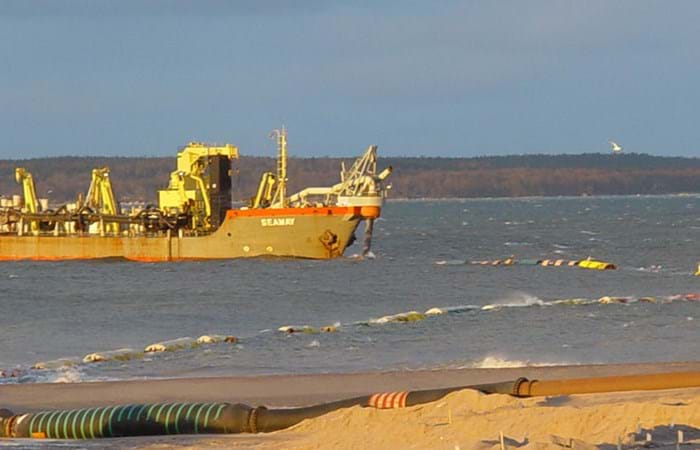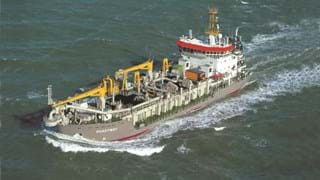The Muuga Coal terminal, sited on a bay, east of the existing port of Muuga, is to handle some five million tons of Siberian coal a year for destinations worldwide. The coal is shipped to Muuga by rail. Future developments may include container berths and steel facilities. The main contractor for the development of the Muuga coal terminal was the Estonian project management group A.S. Merko Ehitus. The dredging subcontract was awarded in late May 2003 to Terramare Eesti O.Ü., the Estonian arm of the Finnish-based Boskalis group company Terramare Oy.
The scope of works included the dredging of one million cu m of clay to create Muuga’s access channel, plus another 1.5 million cu m for three large berths. The soil was varying from soft clay to very hard Cambrian clay. There were also areas with a high concentration of boulders. The new coal terminal’s access channel had to be dredged to -17.8 m; two berths had to be dredged to -11 m and the third berth to -17.1 m. Dredged clay was transported to an offshore disposal area close to the island of Aksi. The contract also provided for reclamation of the terminal area, requiring 2.5 million cu m of sand. Two borrow areas were used. Around 750,000 cu m was won from a location near Prangli, an island close to Aksi. The balance was sourced from an area near Naissaar, an island to the west, of Tallinn. Weather and, in particular, winter ice conditions were a challenge, as was unexploded ordnance.

